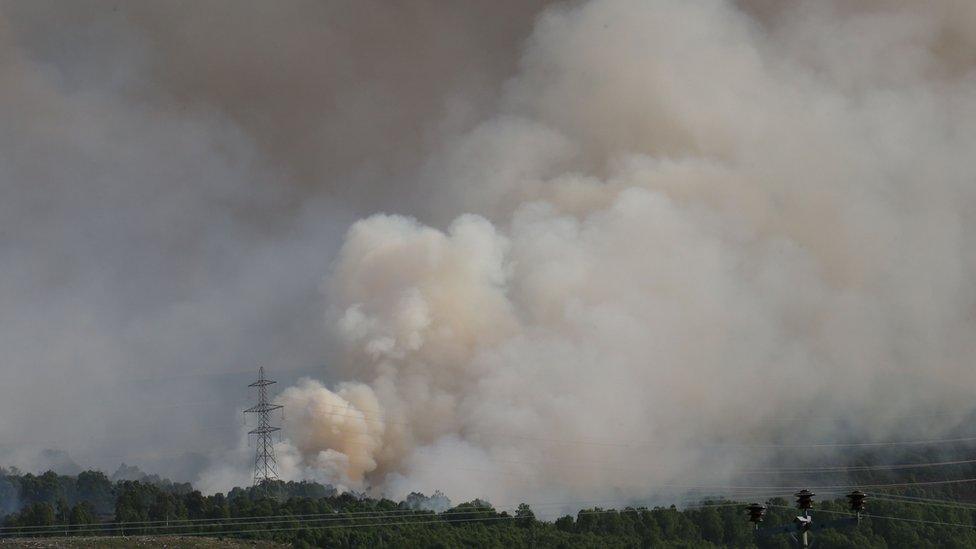Extreme wildfire warning issued for north-west Scotland
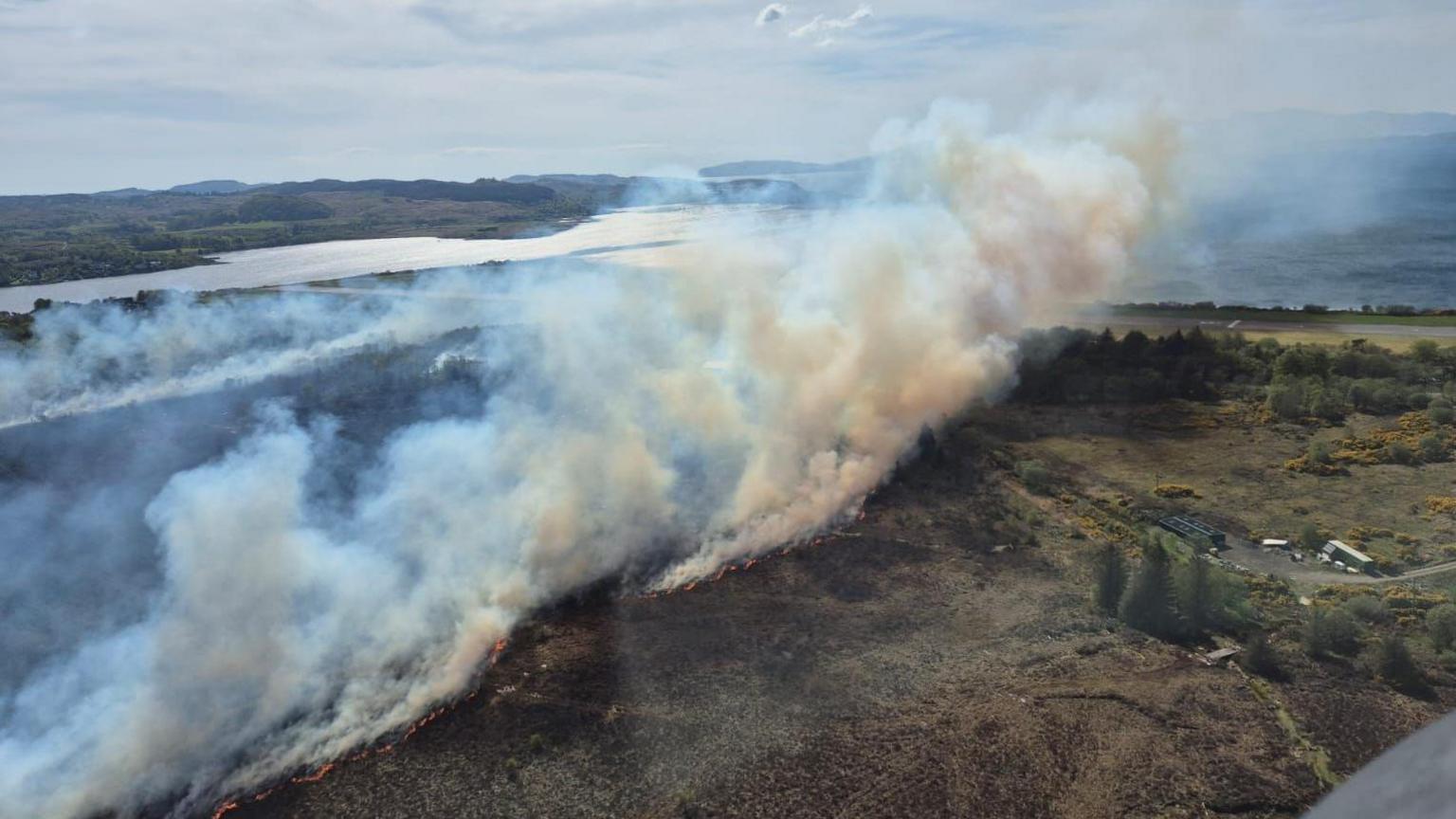
A large wildfire was extinguished near Conell on Thursday
- Published
An "extreme" wildfire warning has been issued for north-west Scotland by the Scottish Fire and Rescue Service (SFRS).
The alert is in place until Saturday, taking in large parts of the west Highlands, Skye and the Western Isles.
Much of the rest of Scotland has a "very high" risk warning in place.
The SFRS urged visitors to exercise caution and think twice before using anything involving a naked flame.
The warning comes after the A85 in Argyll was closed at Connel Bridge due to a wildfire on Thursday.
The SFRS said four fire engines were sent out to extinguish the blaze covering 500sqm of grass and gorse.

How do wildfires happen?
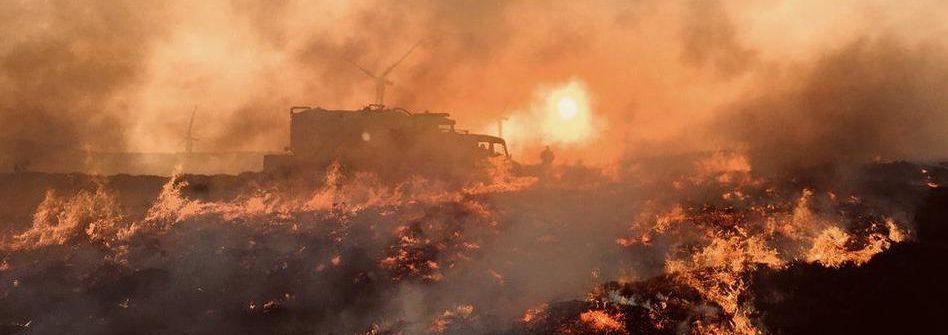
The Scottish Fire and Rescue Service defines wildfires as large, uncontrolled outdoor fires that exceed 1,000sqm in area.
These typically happen in places with combustible vegetation that acts as fuel to allow the fire to spread rapidly.
They are described as "unplanned, uncontrolled, and unpredictable" and people need to take the greatest care at high-risk times of year.
Common causes of wildfires include:
Unattended flames - barbecues, campfires, and bonfires that are not properly extinguished
Controlled burns - These are used to manage land, but can spiral out of control if they go wrong
Cigarettes - Careless disposal can spark a fire in dry conditions
Glass bottles - Sunlight shining through a bottle can act like a magnifying glass, focusing heat on dry grass nearby
Hot and dry weather - Prolonged periods create a "tinderbox environment" where even a small spark can easily ignite a wildfire
Cold, dry and sunny weather - The combination of low humidity and strong winds can dry out vegetation and fuel wildfires
More information and advice is available from the Scottish Fire and Rescue Service website, external.

The SFRS said many rural communities were "hugely impacted" by wildfires that could cause significant damage.
Group Commander Niall MacLennan, a wildfire tactical advisor, said: “These fires can destroy wildlife and habitat, including protected woodlands and sites of special scientific interest, as well as the lives of people living and working in rural communities.
“These fires can also have a hugely negative impact on the environment and the release of greenhouse gas emissions into the atmosphere."
Last year, the fire service attended 133 incidents between March and June - with more than a third occurring across the Highlands.
Visitors are asked to follow the Scottish Outdoor Access Code, external.
Related topics
More on wildfires
- Published31 May 2023
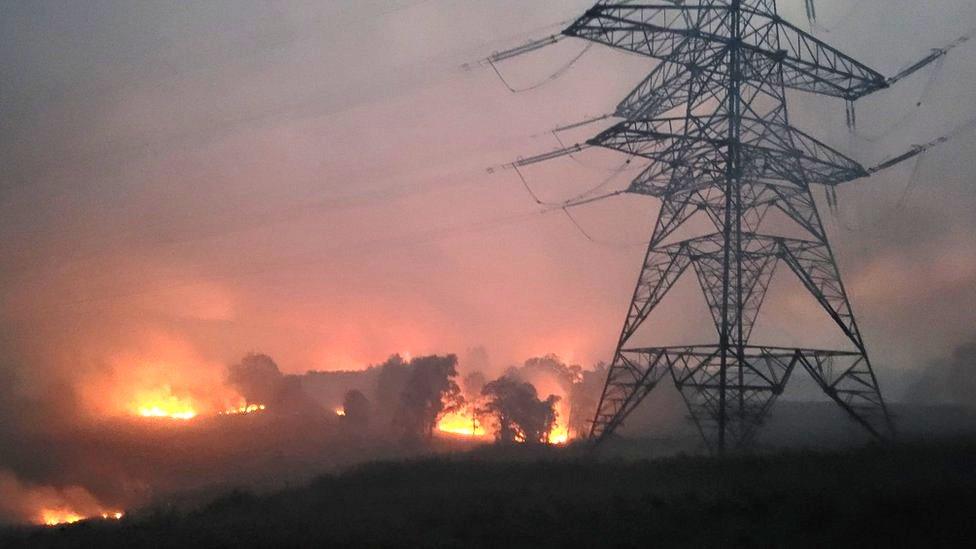
- Published1 March 2024
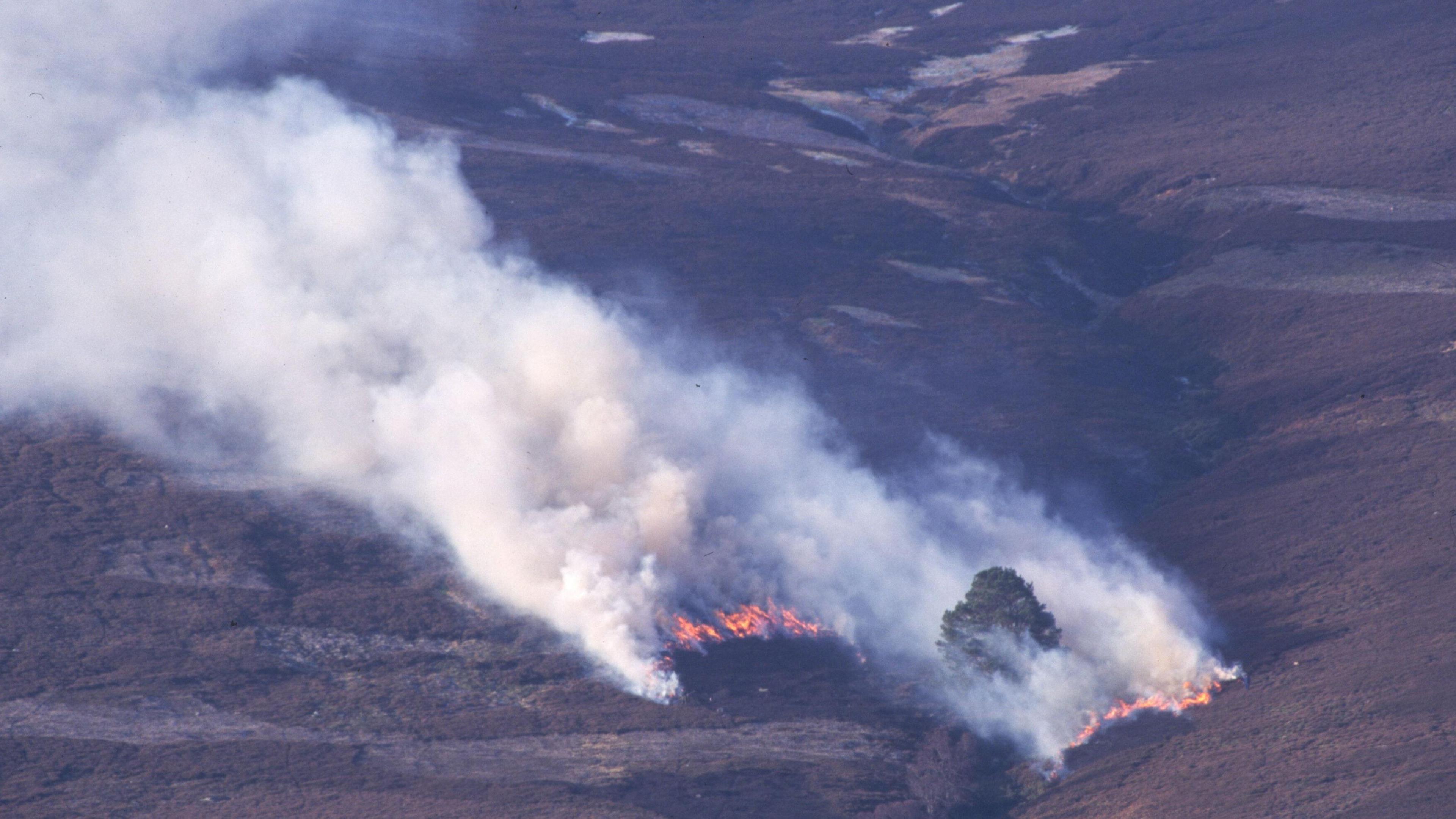
- Published30 May 2023
